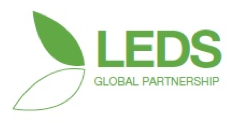Two regional workshops in Kinshasa, Democratic Republic of Congo (DRC), addressed the relationship between green growth and natural resources management, including best practices on low emissions development strategies (LEDS).
![]()
 15 April 2014: Two regional workshops in Kinshasa, Democratic Republic of Congo (DRC), addressed the relationship between green growth and natural resources management, including best practices on low emissions development strategies (LEDS).
15 April 2014: Two regional workshops in Kinshasa, Democratic Republic of Congo (DRC), addressed the relationship between green growth and natural resources management, including best practices on low emissions development strategies (LEDS).
Opening the series of workshops, African Development Bank (AfDB) Resident Representative Valentin Zongo noted that the main challenge for Africa is to develop while managing climate change, demand for natural resources and demographic changes. Describing Africa as essentially low carbon, Zongo called for identifying development opportunities that ensure sustainability, improve efficiency and meet energy needs.
The LEDS Global Partnership, which seeks to identify efficient development pathways that simultaneously limit greenhouse gas (GHG) emissions, organized the first one-day workshop. Participants discussed LEDS in Africa, including the potential scope of an Africa-focused LEDS partnership and priority activities, such as coordinating regional LEDS activities, peer learning and technical collaboration.
Participants then convened for a two-day Regional Green Growth Knowledge Platform (GGKP) Practitioners’ Workshop, on the topic of ‘Pathways to Green Growth in Africa’ and organized by the World Bank. In the opening plenary, Marianne Faye, World Bank, and Frank Sperling, AfDB, discussed the rationale for green growth in Africa and the potential of green growth strategies to improve and sustain human welfare. Moustapha Kamal, International Labour Organization (ILO), highlighted job opportunities that result from greening development processes. Additional sessions focused on: renewable energy; sustainable transport and infrastructure; and the environmental impacts of growth.
The second day focused on forest management in the Congo Basin. Participants considered: applying climate risk management tools, including fiscal reform and green investment; promoting behavioral change to enable economic transformation; and governance. During a session on national experiences, representatives from Kenya shared their experiences implementing inclusive green growth strategies.
Over 120 participants from 24 countries attended the workshops, which took place from 31 March to 3 April 2014. The German Federal Ministry for Economic Cooperation and Development (BMZ) funded the workshop, with additional support from the LEDS Global Partnership and the Program on Forests (PROFOR). [AfDB Press Release] [GGKP Press Release] [World Bank Press Release] [GGKP Workshop Website]